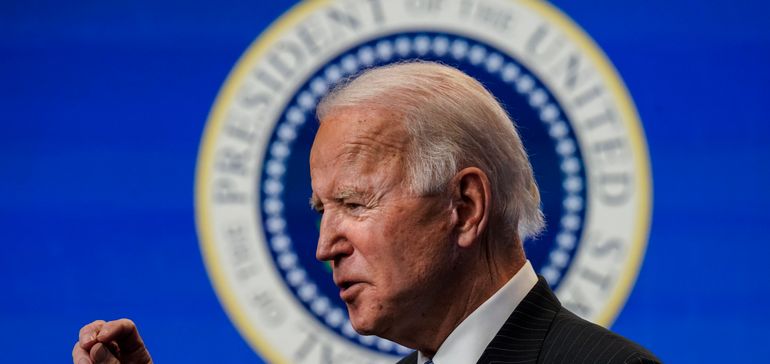
President Biden to sign executive order aimed at protecting abortion access
Dive Brief:
- President Biden said on Friday that he would sign an executive order aimed at protecting access to abortion and other reproductive health services in the wake of the Supreme Court’s decision to overturn Roe v. Wade.
- The executive order asks Department of Health and Human Services Secretary Xavier Becerra to submit a report within 30 days outlining additional steps the administration can take to protect access to medication abortion, emergency contraception and intrauterine devices (IUDs), and emergency care for pregnant people. Additionally, it asks Becerra to convene a team of pro bono attorneys and activists to protect abortion providers.
- Details regarding exact steps in the order are unclear, with President Biden saying hours after the fall of Roe that he alone lacked the authority to restore the constitutional right to abortion. “The only way we can secure a woman’s right to choose and the balance that existed is for Congress to restore the protections of Roe v. Wade as federal law,” the president said following the SCOTUS ruling. “No executive action from the president can do that.”
Dive Insight:
The executive order comes as attempts to codify abortion rights into federal law have repeatedly stalled in Congress and states attempt to restrict access to abortion and prosecute physicians who provide them.
Calling the court decision an “affront to women’s fundamental rights,” the president’s order calls on Federal Trade Commission Chair Lina Khan and Becerra to consider issuing new HIPAA guidance to protect against digital surveillance. The suggested guidance comes after Democratic lawmakers have amplified calls to protect the online data of patients seeking abortions.
The order also asks Becerra to convene a team of private pro bono attorneys and other activists to “encourage representation of patients, providers, and third parties lawfully seeking or offering reproductive health care services throughout the country” including patients seeking reproductive care out of state.
Although Justice Brett Kavanaugh stated in the Dobbs v. Jackson Women’s Health Organizations concurring opinion that states may not bar abortion seekers from traveling out of state, lawmakers in states like Texas have vowed to introduce legislation attempting to prosecute companies that help employees cross state lines to get abortions.
Additional tasks outlined in the order include efforts to protect the safety of patients and abortion clinics, provide leave for federal workers traveling for reproductive care and provide accurate online information about access to reproductive healthcare. The order also establishes an interagency task force for reproductive healthcare access.